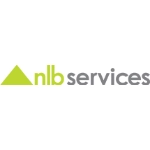© 2025 Next Level Business Services Inc. All Rights Reserved.
How to Answer ‘Why do you want to leave your current job?
By NLB Services
“Why you left your previous job” is one of the most common discussion points you might encounter during an interview.
And rightfully so!
When you leave your job without any valid reason, there’s a possibility that you might do the same in the new job when you get it. That’s why the interviewer may ask you, “Why did you leave your previous job?”
And since replacing and onboarding an employee takes time, effort, and money, it would only make sense for the recruiter who wants to ensure that you’re not going to quit on them soon and are a reliable candidate.
So, you might wonder, what is it that you can say to the interviewer as a reason for leaving a job?
Well, we’re about to answer that question in our blog!
Understanding the Purpose of the Question
Your performance in your last company is seen as an indication of how you’ll perform in the next one. Considering how expensive replacing an employee will be, recruiters ask many questions related to your previous job, and past experiences, one of which is “Why did you leave your last job?”
Now, the question that arises is: what are the recruiters looking to find out through this?:
Firstly, they want to know whether you were fired from the job and why?
After all, being fired is quite a red flag and usually companies do not hire people who are fired in a job unjustly.
Secondly, they want to ensure that the previous reason will also be maintained in the case of their company. However, the reason should not always be negative, it should be valid.
For example, if you were overqualified or over-experienced for the last position, there would be chances that you might be asked to leave. It can apply to the current role as well. Which the company also understands.
And third – Recruiters want to understand what you see in the job and give weightage to, if your aspirations and long-term goals are such that will make you leave the company sooner.
E.g.: You aspire to be a writer but your previous organization was asking you to do digital marketing. Then you made up your mind to quit and get a job in writing. The recruiter understands that writing is your #1 preference and you would not be able to perform well in digital marketing. So, they will give you a job of writing only and not digital marketing. You will probably enjoy writing more and not the latter.
Now, let’s talk about the most common reasons for leaving a job. Which is what our blog is all about.
Read our full guide – How to prepare for a job interview
Reasons for Leaving Your Current Job
As we discussed above, when the job role is not aligned with the skill sets you possess and your qualifications, then you may tend to leave the company. Let’s assume, you find a job ad which seems a perfect match to your qualifications. It is challenging and has competitive pay with amazing company benefits. But after you start working there, you come to realize things are the opposite of what you had imagined. The task you were assigned was boring, and not at all related to your career path. You are being micromanaged by your seniors and the company culture is just not ok. You will think of quitting it after getting a new job.
This type of situation is valid to leave the company.
Limited growth opportunities for career growth
After you’ve spent a certain time period in the company and when the job becomes monotonous, you may start looking for more knowledge and skill sets. One cannot thrive in limited growth opportunities. Hence limited growth opportunities and work saturation could be other reasons why people look out for a job change and leave their present company.
Poor work environment
A toxic work culture and poor work environment can hamper your career growth. It can take a toll on your mental and physical health too. And then it becomes very tough to be productive in such a work environment. As per a survey, a toxic work culture is the strongest predictor of industry-adjusted attrition and is ten times more important than compensation in predicting turnover. In order to achieve the career goals that an individual sets for themselves, they decide to leave the company to thrive in a more positive work environment.
The final predictor of leaving a company is unclear ethical standards. A company’s values should provide a north star for employee behavior. Often it doesn’t exist and is mostly unknown. Nowadays, in an organization, when processes are not tech-enabled, one-third of employees don’t feel confident in working in such an environment. Some employees can’t survive in such kind of an environment and tend to leave the organization as soon as they get another opportunity.
Searching for new opportunities and challenges
It is the most common answer to the question ‘Why do you want to leave your current job?’ wherein, the candidate says he/she is looking for new opportunities that are more challenging. There can be many aspects to the same. Some might be saturated to the monotonous job they have been doing for years, whereas some might do it for the sake of higher packages. What so ever be the reason, the safer way to convey the reason for leaving would be searching for new and challenging opportunities.
Strategies to answer “Why do you want to leave your current job”
Emphasize Positive Factors
To answer it on a positive note, you can always say that you have saturated the learning experience in the current company and want to learn more. After taking certain courses, you might get a degree and more exposure to the software you are working on and it will help you professionally in career enhancement. Having disclosed that, you may also like to add that at this point you are willing to work hard, learn and implement the new practices you have learned in the course. It will not only help the company to grow but will also be an added advantage in your career.
Be honest and professional; tell them you are looking for different work arrangements.
There can be tons of reasons why you might want to look for a different work arrangement:
- Suppose you had a child and you wanted to work from home or on a freelance basis. This reason can be genuine and there are very few companies who will allow it.
- To pick up new skills you would need a full-time course, hence you would want to switch to part-time.
- Your partner wants to move to a different country, so you’re looking for a remote job.
Avoid Criticizing Your Current Job and Employer
Never criticize your current company to the new employer or interviewer. It might give a bad impression to the employer and reduce your chances of getting interviewed further. It is normal to have office politics in an organization. However, leaving an organization because of office politics might render you an escapist or quitter. There are chances that they might also not consider you for the job, considering you are not daring enough to take up the job role.
Show Enthusiasm for your New role
Talk about the new job role and perks the new company is offering and show some enthusiasm that you are excited for the new role.
Examples of Positive and Negative Answers
Real-life situations on how to answer the question (positive)
Leaving the employer because you got a better offer from another competitor is a valid reason to quit your job:
When you get a better salary, benefits, or maybe a more favorable working arrangement, you have a valid reason for answering the “Why did you leave your job” interview question.
And for the answer itself, you may go for something short and sweet like
I left my last organization because the new company offered me a better position and package.
Real-life situations on how not to answer the question (negative)
Let’s start off by saying that layoff is not uncommon in the present unpredictable time. But, a lot of people out there have gotten fired too.
In some cases, employees are fired for no fault of their own. Either there are some biases in the company or they keep the expectations very high that you cannot meet them and they ask you to leave. In any situation or case, as long as you learn from your mistakes and experience, you can still make a compelling case as to why your next employer should hire you.
What is NOT ok is lying about why you were fired in the first place. The best way to answer the job interview question in case you were fired would be
Example:
I was let go because of a mismatch between the job and my understanding. I expected for the role to be more focused on SEO and digital marketing, but I ended up doing a lot of content generation instead, which isn’t necessarily my strong suit. Nor would I like to pursue it further in my career. As such, I underperformed in the content writing role, and the management just didn’t like my output and they asked me to leave.
Conclusion
Now that we’ve shared enough insight about the topic of what to answer when you are asked “Why did you quit your last job?’, you know how to answer this tough interview question. Let us do a small recap of things we’ve discussed and our learnings so far:
Interviewers ask “Why did you quit your last job?” because it tells them a lot about the candidate. It helps them to know if the candidate was fired or had left the job voluntarily.
Their reasons for leaving will help the new employer understand their status and terms of employment with them thereafter when they get hired.
Talent Solutions








